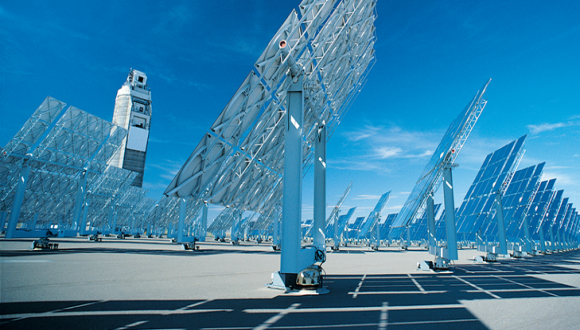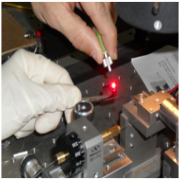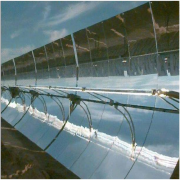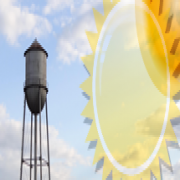Solar Energy for Water Disinfection
Large quantities of drinking water can be disinfected quickly and cheaply by combining solar heating and ultra-violet irradiation
Large quantities of drinking water can be disinfected quickly and cheaply by combining solar heating and ultra-violet irradiation
Contaminated drinking water is one of the main causes of disease and mortality in developing countries. Former Porter Fellow Dr Hadas Mamane, in collaboration with Professor Kribus, is developing a method for disinfecting large amounts of water using solar energy. This exciting new research has the potential of improving the health and quality of life for people in poor communities in third world countries who have little or no access to clean drinking water, and cannot afford modern water treatment technologies.
The ultra-violet (UV) part of solar radiation is known for its ability to disinfect water by destroying or inactivating microbial cells, but solar UV by itself is a very weak disinfectant. Disinfection by solar heating can be effective but requires high temperatures. A combination of both heat and UV can produce higher rates of disinfection than the sum of the two processes operating separately. However, the solar disinfection technology presently available, known as SODIS (solar water disinfection), can treat only small amounts of water at a time, and requires a long time of exposure to solar radiation (typically 6 hours or more).
A recent exciting discovery in Mamane and Kribus’ research is that certain additives can accelerate the disinfection process, reducing the time and lowering the needed temperature. These additives are abundant, inexpensive, and safe materials. The use of these additives, together with knowledge obtained in ongoing studies of the various process parameters, will enable the definition of optimum low-cost but highly effective solar disinfection technology. These advances in solar disinfection can be used in small scale (similar to SODIS) or in large community-scale water treatment systems.
The technology developed by Mamane and Kribus involves what Mamane calls a “synergy” of heat, solar radiation and a natural water additive. “The idea,” explains Mamane, “is to find a method of disinfecting water that is cheap and that takes advantage of the natural properties of solar heating.”
She adds, “Developing countries don’t have much money – but they do have sunlight!”






